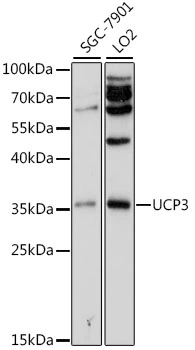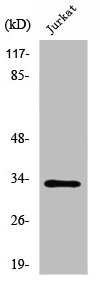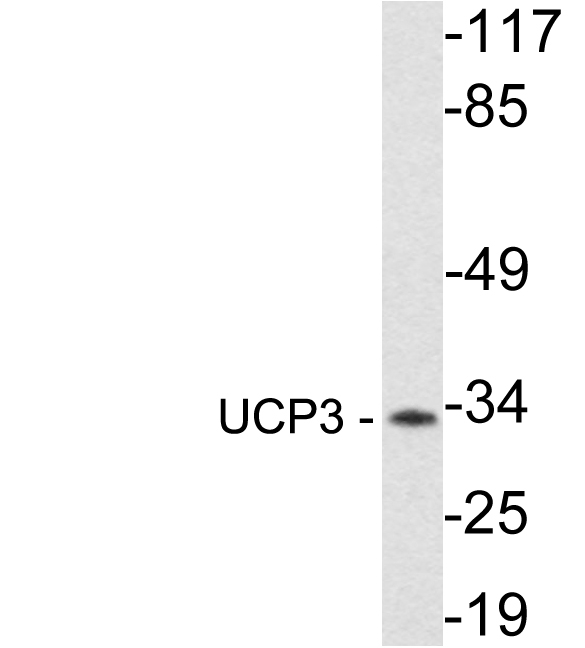
WB analysis of various sample lysates using GTX32947 UCP3 antibody. Dilution : 1:500 Loading : 25μg per lane
UCP3 antibody
GTX32947
ApplicationsWestern Blot
Product group Antibodies
ReactivityHuman
TargetUCP3
Overview
- SupplierGeneTex
- Product NameUCP3 antibody
- Delivery Days Customer9
- Application Supplier NoteWB: 1:500 - 1:2000. *Optimal dilutions/concentrations should be determined by the researcher.Not tested in other applications.
- ApplicationsWestern Blot
- CertificationResearch Use Only
- ClonalityPolyclonal
- ConjugateUnconjugated
- Gene ID7352
- Target nameUCP3
- Target descriptionuncoupling protein 3
- Target synonymsSLC25A9, putative mitochondrial transporter UCP3, mitochondrial uncoupling protein 3, solute carrier family 25 member 9, uncoupling protein 3 (mitochondrial, proton carrier)
- HostRabbit
- IsotypeIgG
- Protein IDP55916
- Protein NamePutative mitochondrial transporter UCP3
- Scientific DescriptionMitochondrial uncoupling proteins (UCP) are members of the larger family of mitochondrial anion carrier proteins (MACP). UCPs separate oxidative phosphorylation from ATP synthesis with energy dissipated as heat, also referred to as the mitochondrial proton leak. UCPs facilitate the transfer of anions from the inner to the outer mitochondrial membrane and the return transfer of protons from the outer to the inner mitochondrial membrane. They also reduce the mitochondrial membrane potential in mammalian cells. The different UCPs have tissue-specific expression; this gene is primarily expressed in skeletal muscle. This genes protein product is postulated to protect mitochondria against lipid-induced oxidative stress. Expression levels of this gene increase when fatty acid supplies to mitochondria exceed their oxidation capacity and the protein enables the export of fatty acids from mitochondria. UCPs contain the three solcar protein domains typically found in MACPs. Two splice variants have been found for this gene.[provided by RefSeq, Nov 2008]
- ReactivityHuman
- Storage Instruction-20°C or -80°C,2°C to 8°C
- UNSPSC41116161





